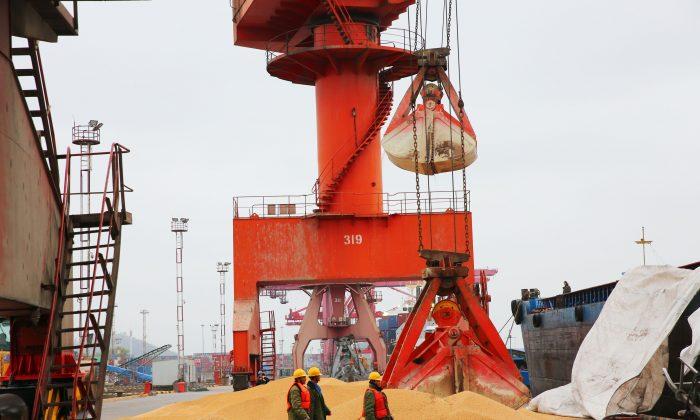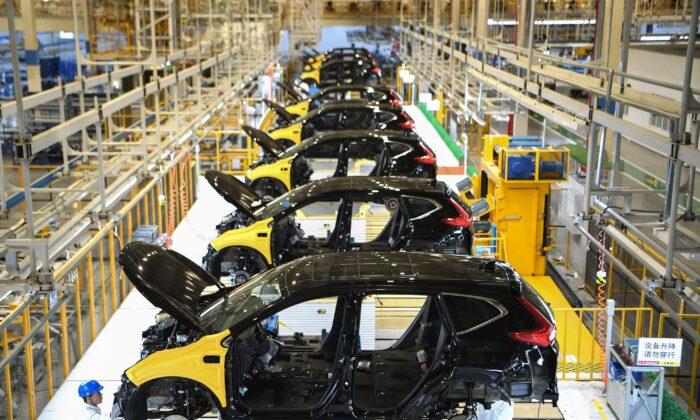News Analysis
The United States lost about 451 manufacturing and 145 other jobs a day since sponsoring China’s entry into the World Trade Organization in 2001, the Economic Policy Institute
reported.
President Bill Clinton
passed legislation on May 2000 to give China permanent normal trade privileges. Clinton’s decision paved China’s entry into the World Trade Organization on Dec. 1, 2001, “cementing his legacy of using free trade to advance America’s foreign policy interests,” according to online magazine
Slate.
But the Economic Policy Institute (EPI) found the 3.7 million U.S. job losses corresponds to the $17 trillion in U.S. trade deficits with China, and
$17 trillion growth of U.S. national debt from 2011 through 2018.
EPI documents show that the worst state for percentage job losses as a result of China’s entry into the WTO was New Hampshire, which is set to hold the first Democrat presidential primary on Feb. 11. Unlike other states that had pockets of concentrated WTO job losses, EPI’s
interactive map reveals that the losses blanketed the state’s high-skill mill towns such as Nashua, Manchester, Laconia, Portsmouth, and Concord.
California was the worst state for negative WTO impacts with 654,100 total job losses. The Golden State also had the three worst impacted Congressional Districts in areas just south and west of Silicon Valley. The 17th District lost 787,700 jobs, or 20.4 percent of its workforce; the 18th District lost 48,400 jobs, or 12.99 percent of its workforce; and the 19th District lost 45,400 jobs, or 11.91 percent of its workforce.
California had another 9 of the other “Top Twenty” worst hit Congressional Districts. California, which holds its presidential primary on March 3, was also reported by the U.S. Census Bureau to lead the nation with
5,160,208 people living in poverty.
When the Clinton administration advocated granting China WTO most favored nation status to increase U.S. high technology exports, the United States had about a $6 billion monthly trade deficit with China. But with about
$35 billion a month China trade deficit in 2018, Census Bureau data reveals about 32.1 percent of the U.S. goods trade deficit with China is “advanced elements of the computer and electronic parts industry as well as other sectors such as biotechnology, life sciences, aerospace, and nuclear technology.”
In stark contrast to persistent trade deficits with China, the “United States had a $6.5 billion trade surplus in advanced technology products with the rest of the world in 2018.” In addition to job losses and factory closings, EPI also blames the WTO for “contributing to stagnating wages of typical workers and widening income inequality.”
Advocates claimed that bringing China under the international rule of law
would “bring it into compliance with an enforceable, rules-based regime that would require China to open its markets to imports from the United States and other nations by reducing Chinese tariffs and addressing non-tariff barriers to trade.”
EPI blames China for engaging in trade-distorting practices that violated WTO rules including giving large subsidies to its state-owned enterprises; failing to abide by labor or environmental standards; currency manipulation; and subsidizing production oversupply to dump excess production below cost primarily in the United States. Beijing’s unfair trade practices caused U.S. companies to close factories, fire workers and outsource jobs to China.





